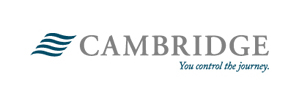Quote of the Week
“Bull markets are born on pessimism, grow on skepticism, mature on optimism and die on euphoria.” – Sir John Templeton
Technical Corner
Last week the stock markets were down about 1% on average. Today (Monday), the markets sold off with the S&P 500 down 1.86%, the Nasdaq down 1.65%, and the Dow down 2.29%.
I received an email from a good client today, wondering what he should do with his portfolio in his 401k, which we help him manage. The volatility in the markets is rising, which it always does during a sell-off. Also, the election is just around the corner. As I told him in reply to his email, we are merely spectators until the election is over. What happens between now and the election is anyone’s guess.
We are currently positioned in a safe allocation of assets because that is where we should be based on mathematics. The process that we use tells us the proper asset positions as of today, not tomorrow or into the future. The process is not predictive.
The process does not take into consideration the current political situation. The process does not take into consideration the rapid rise in COVID-19 cases. The process does not take into consideration whether there will be a stimulus now or never. The process gives us the assets with the highest mathematical probability of success as of right now. When the math changes, we will change the asset allocation. We are not opposed to changing our asset positioning. Our egos are not dependent on being right all of the time.
I spent many years in my early career trying to predict the economic future with a “hit or miss” success. Sometimes I looked like a genius, and sometimes I looked like a bum. Now I trust the probability of mathematics.
Larry’s Thoughts
This week I’m sharing an article that a colleague shared with me. Enjoy. https://www.nytimes.com/2020/10/20/opinion/covid-education-work.html
After the Pandemic, a Revolution in Education and Work Awaits
Providing more Americans with portable health care, portable pensions and opportunities for lifelong learning is what politics needs to be about post-Nov. 3.
By Thomas L. Friedman, Opinion Columnist, October 20, 2020
The good Lord works in mysterious ways. He (She?) threw a pandemic at us at the exact same time as a tectonic shift in the way we will learn, work and employ. Fasten your seatbelt. When we emerge from this corona crisis, we’re going to be greeted with one of the most profound eras of Schumpeterian creative destruction ever — which this pandemic is both accelerating and disguising.
No job, no K-12 school, no university, no factory, no office will be spared. And it will touch both white-collar and blue-collar workers, which is why this election matters so much. How we provide more Americans with portable health care, portable pensions and opportunities for lifelong learning to get the most out of this moment and cushion the worst is what politics needs to be about after Nov. 3 — or we’re really headed for instability.
The reason the post-pandemic era will be so destructive and creative is that never have more people had access to so many cheap tools of innovation, never have more people had access to high-powered, inexpensive computing, never have more people had access to such cheap credit — virtually free money — to invent new products and services, all as so many big health, social, environmental and economic problems need solving.
Put all of that together and KABOOM!
You’re going to see some amazing stuff emerge, some long-established institutions, like universities, disappear — and the nature of work, workplaces and the workforce be transformed.
I’ve been discussing this moment with Ravi Kumar, the president of the Indian tech services company Infosys, whose headquarters is in Bangalore. Because Infosys helps companies prepare for a digital world, I’ve always found it a source of great insight on global employment/education trends. I started my book “The World Is Flat” there in 2004. Back then, Infosys’ main business was doing work that American companies would outsource to India. Today, Kumar operates from New York City, where he’s creating thousands of jobs in America. How could that be?
It starts with the fact, explained Kumar, that the Industrial Revolution produced a world in which there were sharp distinctions between employers and employees, between educators and employers and between governments and employers and educators, “but now you’re going to see a blurring of all these lines.”
Because the pace of technological change, digitization and globalization just keeps accelerating, two things are happening at once: the world is being knit together more tightly than ever — sure, the globalization of goods and people has been slowed by the pandemic and politics, but the globalization of services has soared — and “the half-life of skills is steadily shrinking,” said Kumar, meaning that whatever skill you possess today is being made obsolete faster and faster.
Your children can expect to change jobs and professions multiple times in their lifetimes, which means their career path will no longer follow a simple “learn-to-work’’ trajectory, as Heather E. McGowan, co-author of “The Adaptation Advantage,” likes to say, but rather a path of “work-learn-work-learn-work-learn.”
“Learning is the new pension,” Ms. McGowan said. “It’s how you create your future value every day.”
The most critical role for K-12 educators, therefore, will be to equip young people with the curiosity and passion to be lifelong learners who feel ownership over their education.
Obviously, everyone still needs strong fundamentals in reading and writing and math, but in a world where you will change jobs and professions several times, the self-motivation to be a lifelong learner will be paramount.
Parallel to that, explained Kumar, accelerations in digitization and globalization are steadily making more work “modular,’’ broken up into small packets that are farmed out by companies. Companies, he argues, will increasingly become platforms that synthesize and orchestrate these modular packets to make products and services.
In the process, Kumar added, “work will increasingly get disconnected from companies, and jobs and work will increasingly get disconnected from each other.’’ Some work will be done by machines; some will require your physical proximity in an office or a factory; some will be done remotely; and some will be just a piece of a task that can also be farmed out to anyone, anywhere.
As more work becomes modular, digitized and disconnected from an office or factory, many more diverse groups of people — those living in rural areas, minorities, stay-at-home moms and dads and those with disabilities — will be able to compete for it from their homes.
The reason Kumar now operates from New York is that he sees a huge new market in helping U.S. companies to prepare for this world by identifying potential new employees with skills — whether or not they have college degrees — then pairing them with new pathways of online training and pairing companies with these new talent pools. Every big company is going through this now — or will. Even The New York Times!
Look at the list of online opinion writers for The Times: It’s radically different from when I became a columnist in 1995, when you had to be a staff employee. Today we have full-time staff columnists; columnists who are not on the staff but contribute regularly from all over the world, and on many days, one-time contributors. The people who moderate the comments on our columns are workers who plug in from all over the world, and much of the art is provided by freelancers. My longtime copy editor is working from home.
Welcome to the Times orchestra.
This is already having a big impact on education. “We have started hiring many people with no degrees,’’ explained Kumar. “If you know stuff and can demonstrate that you know stuff and have been upskilling yourself with online training to do the task that we need, you’re hired. We think this structural shift — from degrees to skills — could bridge the digital divide as the cost of undergraduate education has increased by 150 percent over the last 20 years.’’
Infosys still hires lots of engineers. But today Kumar is not looking just for “problem solvers,’’ he says, but “problem-finders,’’ people with diverse interests — art, literature, science, anthropology — who can identify things that people want before people even know they want them.
Steve Jobs was the ultimate problem-finder.
Now so many more people can play at that, because you no longer need to know how to code to generate new software programs. Thanks to artificial intelligence, there is now “no-code software.’’ You just instruct the software to design some code for the application that you’ve imagined or need and, presto, it will spit it out.
“We’re seeing the democratization of software — the consumers can now be the creators,’’ Kumar explained. It shows you how AI will take away jobs of the past, while it creates jobs of the future.
Finally, he argues, in the future, postsecondary education will be a hybrid ecosystem of company platforms, colleges and local schools, whose goal will be to create the opportunity for lifelong “radical reskilling.”
“Radical reskilling means I can take a front-desk hotel clerk and turn him into a cybersecurity technician. I can take an airline counter agent and turn her into a data consultant.”
Today, companies like Infosys, IBM or AT&T are all creating cutting-edge in-house universities — Infosys is building a 100-acre campus in Indianapolis designed to provide their employees and customers not “just-in-case learning’’ — material you might or might not need to master the job at hand — but “just-in-time learning,’’ offering the precise skills needed for the latest task, explained Kumar.
In the future, lifelong learning will be done by what I call “complex adaptive coalitions.’’ An Infosys, Microsoft or IBM will partner with different universities and even high schools, argues Kumar. The universities’ students will be able to take just-in-time learning courses — or do internships — at the corporations’ in-house universities, and company employees will be able to take just-in-case humanities courses at the outside universities. Both will be able to “learn, earn and work,’’ all at the same time. It’s already beginning.
There is great potential here — if it is done right. The students get exposed to what is most new by way of innovation technologies and techniques. And the company engineers and executives get exposed to what is most enduring — civics, ethics, theories of justice, principles of democracy, notions of the public good, environmentalism and how to lead a life of purpose.
The Times is committed to publishing a diversity of letters to the editor. We’d like to hear what you think about this or any of our articles. Here are some tips . And here’s our email: letters@nytimes.com .
These are the opinions of Larry Lof and not necessarily those of Cambridge, are for informational purposes only, and should not be construed or acted upon as individualized investment advice. Past performance is not indicative of future results. Due to our compliance review process, delayed dissemination of this commentary occurs.
The S&P 500 is an index of stocks compiled by Standard & Poor’s, a division of The McGraw-Hill Companies, Inc. The Index includes a representative sample of 500 leading companies in leading industries of the U.S. economy. Indices mentioned are unmanaged and cannot be invested into directly.
Technical analysis represents an observation of past performance and trend, and past performance and trend are no guarantee of future performance, price, or trend. The price movements within capital markets cannot be guaranteed and always remain uncertain. The allocation discussed herein is not designed based on the individual needs of any one specific client or investor. In other words, it is not a customized strategy designed on the specific financial circumstances of the client. Please consult an advisor to discuss your individual situation before making any investments decision. Investing in securities involves risk of loss. Further, depending on the different types of investments, there may be varying degrees of risk including loss of original principal.











